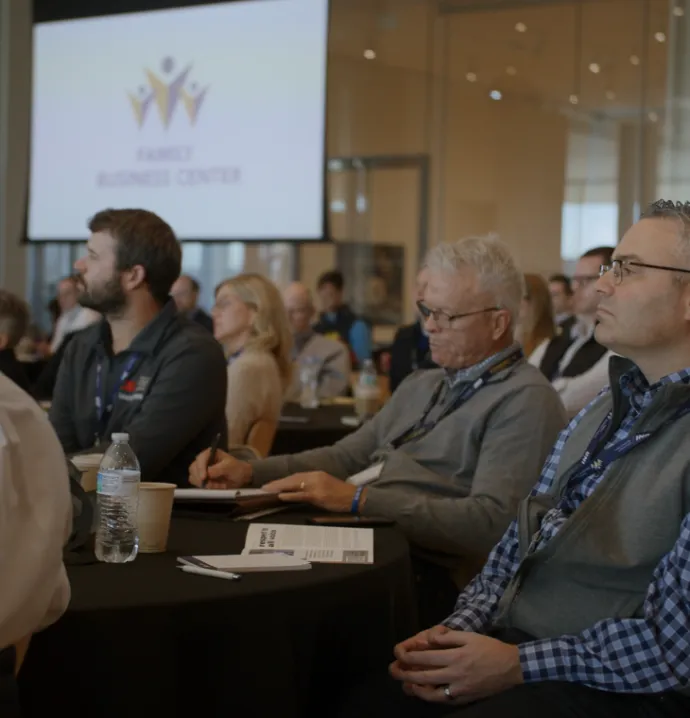What if... We got serious about preparing for the future?
What if... We got serious about preparing for the future?

As my wife and I contemplate our 68th birthdays, we are increasingly thinking about what we plan to do for our remaining years, and the world we will leave our sons and daughter; even more to the point, what kind of world our 21-month-old grandson will grow up to see. Because I teach strategy and business ethics courses, I naturally relate national and world issues to a business context. As I look at the biggest problems facing us now, two related points stand out to me: 1) Business, writ large, is a (perhaps the) large contributor to those issues, and 2) It is most likely our best chance of addressing them. Tom Friedman, an opinion columnist for The New York Times, also points out that all of us, and hence all of our problems are inextricably hyperconnected—meaning we can’t address one problem in isolation.
Every problem-solving or decision-making model I have ever seen includes problem recognition or identification as its first step. That step, in itself, is much more complex than commonly perceived. Systems thinkers tell us that fully understanding an issue requires us to understand the entire system in which it occurs; causes and effects are not always clearly related; “root cause analysis” requires that we follow the chain of origin from a proximate antecedent to the underlying (and often invisible) foundation that brought about the observed result.
In the guise of thinking about business’s role in addressing humanity’s and Earth’s looming disasters, I want to offer a taxonomy of today’s major problems. My first step in doing that entails classifying them into two categories, existential and “merely” crucial. In addition, I think it prudent to consider the time frames in which these problems exist, which in turn, implies how quickly they must be adequately addressed. This idea, of what current events truly matter, is captured in a Ted Talk by Kirk Citron. The recent Academy Awards kerfuffle, Will Smith slapping Chris Rock, may be a good example of events that won’t really matter 10 or 100 years from now.
EXISTENTIAL
Without a doubt, the largest and most critical issue is climate change. If this problem is not addressed soon, there is real potential that human life on Earth will be endangered. Silent Spring, by Rachel Carson, is often cited as the harbinger of the coming climate disaster we now face. Published sixty years ago, in 1962, environmental activists often lament our (lack of) response to it. Innumerable books, articles, films, conferences, and discussions since then have largely failed to provoke any meaningful response. “Climate deniers,” many associated with energy industry firms, spent decades arguing that climate change did not exist. Their efforts were instrumental in delaying serious action to combat it. Notable recent information about this issue can be found in The Uninhabitable Earth by David Wallace-Wells, Under a White Sky by Elizabeth Kolbert, and perhaps most sobering, Climate Change 2022 by the UN’s Intergovernmental Panel on Climate Change (IPCC).
There are many sources that discuss business’s role in dealing with climate change. Stuart Hart’s Capitalism at the Crossroads, This Changes Everything by Naomi Klein, and Four Futures by Peter Frase are some valuable sources in helping to think about how we got here, and what business should do going forward. As the primary source of wealth and innovation today, businesses must take the lead in this endeavor.
Suffice it to say, if we don’t figure out how to address climate change, all our other problems will become irrelevant.
The second existential crisis is, I believe, the current Russia Ukraine conflict. There are many levels at which this confrontation is a critical issue. Most pressing is the human death, injury, and displacement we are seeing. We must also view it from a governmental and human rights perspective. But what makes it an existential crisis is the very real potential that it becomes a nuclear conflict. Although the world has had nuclear weapons since the end of World War II, nearly 80 years ago, and we have “lived with” (perhaps more accurately, “survived”) mutually assured destruction, the Russia Ukraine war is a potent reminder that we are just one red button away from annihilation, either intentionally or by accident. What sane people would knowingly and intentionally harbor weapons capable of completely destroying their own lives and home planet?
The immediate crisis to be resolved is the invasion of Ukraine. But, even if peacefully concluded, all that would do is ease the extant, hair-trigger potential for mass destruction. If humanity is going to provide a safer world for future inhabitants, we must determine some way of eliminating the nuclear threat.
A specific role for business in this realm is not as readily apparent as it is in climate change. However, business and the economy can play a strong supporting role, as it is currently doing with Russia and Ukraine. Economic sanctions appear to be taking a significant toll on Russia’s economy, and aid to Ukraine is helping it resist the invaders. In a similar manner, they could bring pressure on countries to find a way to disarm.
THE “MERELY” CRUCIAL
The COVID pandemic has forcefully reminded us of our collective susceptibility to diseases that originate and mutate in nature. Fortunately, scientists had already done a lot of the research and development needed to develop an efficacious vaccine to combat it. It also made clear that we are inherently at risk for future viruses that may not currently exist.
More generally, human rights are exceedingly important for us to address. As Hart discusses in Capitalism at the Crossroads, business has heretofore done little to address the needs of those living at the “bottom of the pyramid” (i.e., those living in extreme poverty). Despite recent success in reducing the numbers of people living on less than $1.90 per day, nearly ten percent of the world population is still in that state. Current estimates place the number of people living in poverty at well over one billion, nearly one-fourth of total population.
Solomon, the king of Israel in Biblical times, is often quoted as saying, “All problems are people problems.” Lesser know is the second portion of that quote, “And most people problems are people refusing to act like people.” As I talk about the “merely” crucial problems, I think it is fair to revert to his aphorism. If we, as individuals, members of society, or business people, would simply embrace our fellow humans’ rights to life as we do our own, it would go a long way toward solving these issues. As my colleague at UNI, Heidi Noonan-Day, likes to say, “Don’t be a jerk.” Businesses, in particular, could benefit from this concept, and concurrently address many human rights issues.
The views and opinions expressed are those of the author and do not imply endorsement by the University of Northern Iowa.




